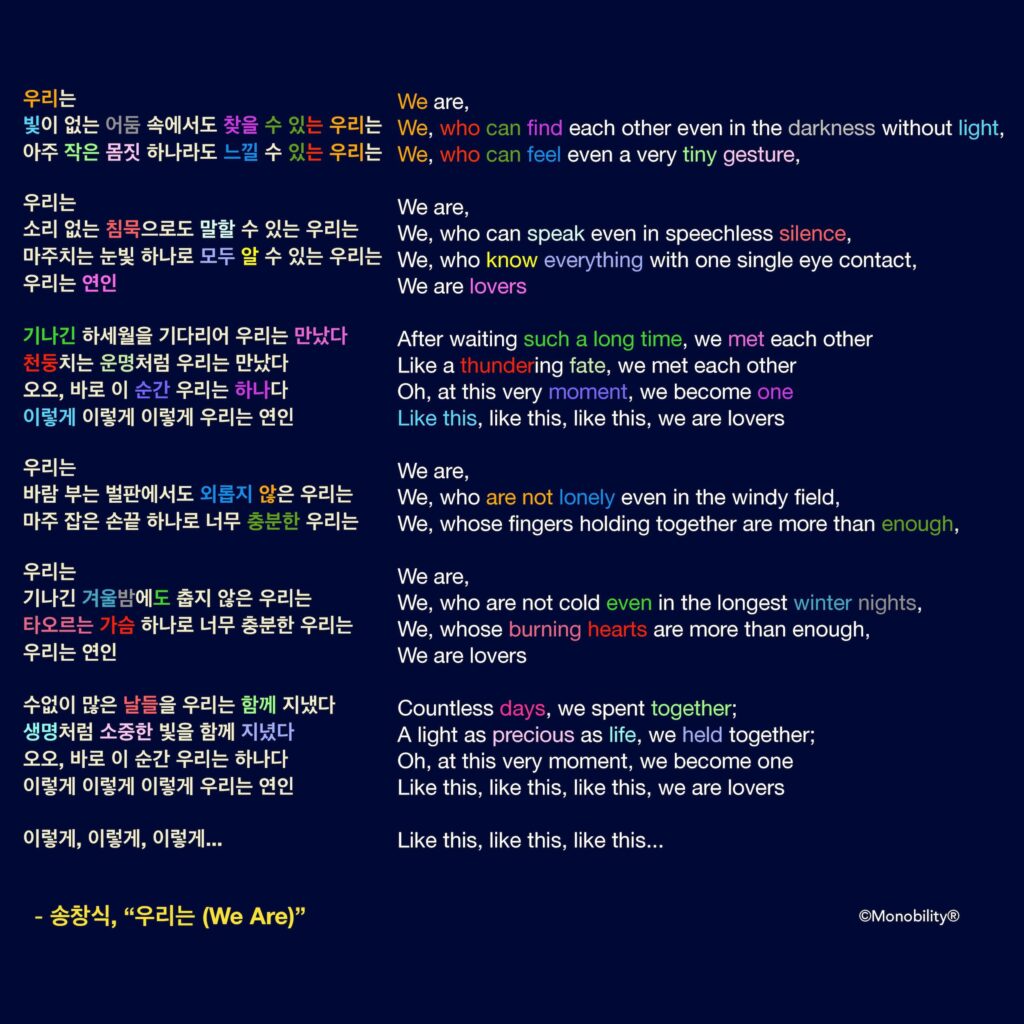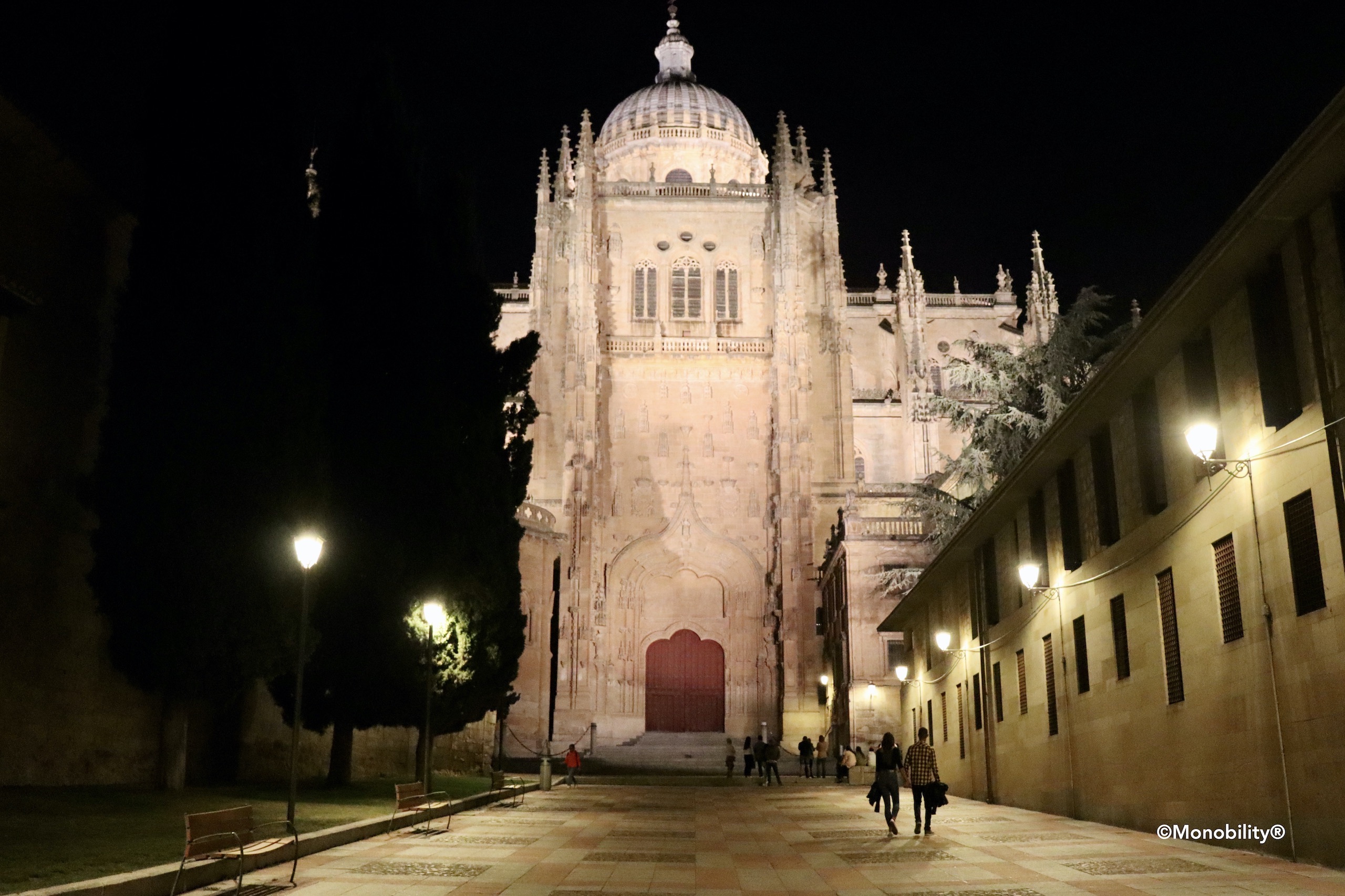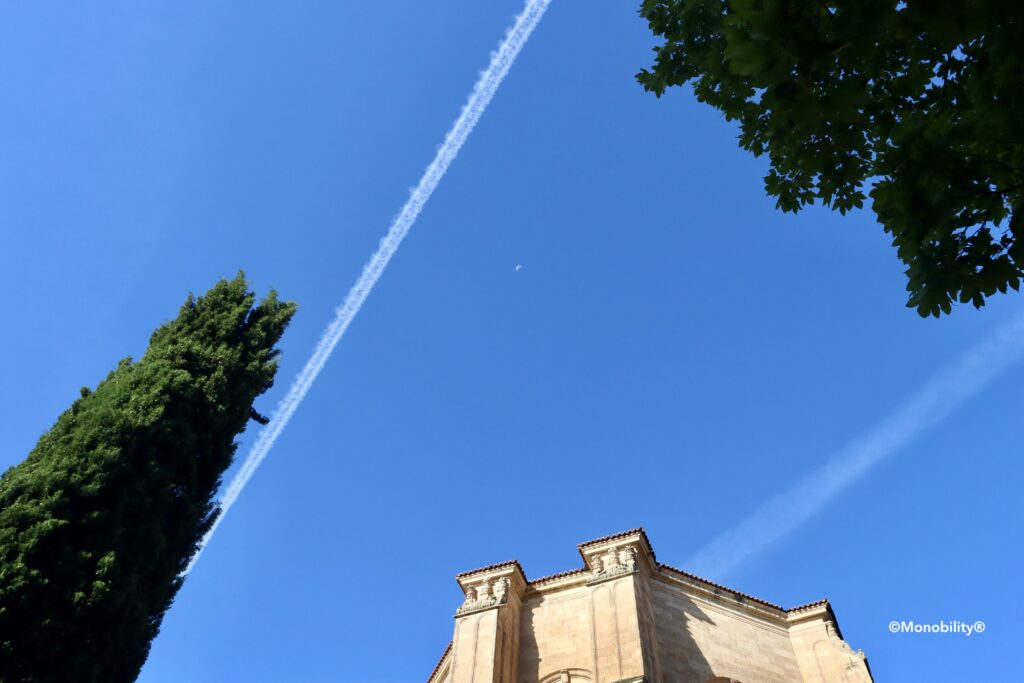When in Rome, do as the Romans do. It was my personal motto, or modus operandi as a traveler whenever I started a long term trip to a new place. So it was not surprising that I turned on Julio Iglesias’ songs in his ever enchanting sultry voice when I arrived in Salamanca, launching my fourth journey in this amazing kingdom called Spain. Sampling from his huge discography available in Spotify and Youtube channels, I encountered a less known but utterly beautiful song titled “Somos (We Are).” With its poetic lyrics sung in a sorrowful, quiet voice, which is rather unusual for Julio’s songs, this little song fascinated me immediately. I fell in love with this little song “Somos” so quickly that I even translated and posted it then and there, for everyone to enjoy.
But then, something was not quite right about the song. I didn’t feel good about it. Was it because of the sad lyrics? Maybe, but not exactly. As you may have noticed somehow, Korean musical taste is a bit mellow side, compared to Spanish taste (and many other people’s), so I am used to even sadder songs. Then why didn’t I feel good about it? I couldn’t figure out what exactly was not right about it until yesterday early in the morning, when I was rolling in my bed and suddenly remembered an 80’s Korean song “우리는 (We Are),” written and sung by the pioneering singer-songwriter 송창식.

It is a song that I was hearing on radio or TV when I was a young student in Seoul. Back then, South Korea was often in turmoil for political and geopolitical reasons: movement for democratization from decades of military dictatorship AND continual threats from North Korea. In those difficult times, 송창식 amalgamized Korean traditional tunes, tonal scale, and lyrics full of typical Korean emotions together with the Western musical elements to lift the Korean pop music one level up, composing and singing a unique style of new songs. In other words, he kept “calm” and carried on, like a wandering minstrel in the turmoils of the Middle Ages in Europe. This song “우리는 (We Are)” is just one of his many creative hit songs. So, please remember, long before BTS (who don’t actually compose their songs), there were K-pop pioneers like 송창식.
But why did I have such a hard time remembering this song “우리는,” while I was infatuated by Julio’s “Somos”? Perhaps I lived in this part of the world a bit too long. Perhaps I am finally beginning to suffer from a long term memory loss.^^ It doesn’t matter. Rather, the right question I should ask myself is, why did I feel not so comfortable about “Somos,” and eventually remembered “우리는,” with its melody and words pouring out of the deepest corners of my brain, waking me up from my bed at 5AM?
My answer to this little musical soul-searching question is like this: I am intrinsically an optimist. Despite my initial infatuation, my unconscious was not comfortable with the quintessential pessimism in the beautiful final lines of “Somos.” So my brain was subconsciously looking for an optimistic alternative and finally rediscovered “우리는” from my memories of long forgotten years. Even though some people say Korean songs are all too sad or mellow, Koreans are inherently optimists. Despite many struggles and wars and invasions in history, Koreans don’t like to wallow in sorrow. Even today, when the world’s biggest bully messes with neighbor countries and the entire world with nuclear threats, when North Korea shoots missiles almost every other day threatening to do the same, South Koreans don’t like to wallow in resentment. In one way or another, Koreans ultimately do something about such threats, as we have been practical optimists throughout our history.
If you get more and more uncomfortable about bad boys’ and gals’ nuclear threats today in addition to the already devastating and heart-wrenching impacts of this unjust, unruly war, you might sit back for a moment and listen to the Korean song “우리는(We Are)” once more. You would feel what this resilient people of an incredibly tiny but irresistibly potent country in the easternmost corner of Asia is trying to tell you. And at this troublesome hour of our topsy-turvy world, hopefully my little video made you smile with a new optimism and hope.
When in Rome, do as the Romans do, but don’t die with your own music echoing in your ear.
– Hugh’s novus modus operandi as a world traveller
Korean Way of Using Relative Clauses and Adjectives for Personal Pronouns
You have probably noticed that many lines in the lyrics use relative clauses modifying a personal pronoun 우리(We):
- 소리 없는 침묵으로도 말할 수 있는 우리는, 우리는 연인 (We, who can speak even in speechless silence, we are lovers.) [ = Being able to speak even in speechless silence, we are lovers. ]
In English, such a structure is rarely used or written, albeit comprehensible, so my intentional word-for-word translation would sound very unnatural. On the other hand, Korean uses such a structure often in written forms such as essays, diaries, poems, songs, or copywriting for ads or commercials:
- 먹지도 웃지도 못해요 I can’t eat, I can’t laugh,
그대를 잃은 나 I, who have lost you,
세상이 끝난 나 I, for whom the world has ended
[from 백지영, “미워요 (I Hate You)”]
It also applies to Korean adjectives modifying a personal pronoun attributively, which is not used in English:
- 가난한 내가 아름다운 나타샤를 사랑해서 오늘 밤은 푹푹 눈이 나린다 Because I, poor as I am, love the beautiful Natasha, tonight it’s snowing thick and fast [ from 나와 나타샤와 흰 당나귀 by 백석 (1912 – 1996) ]
Join Monobility® Group for much more:



